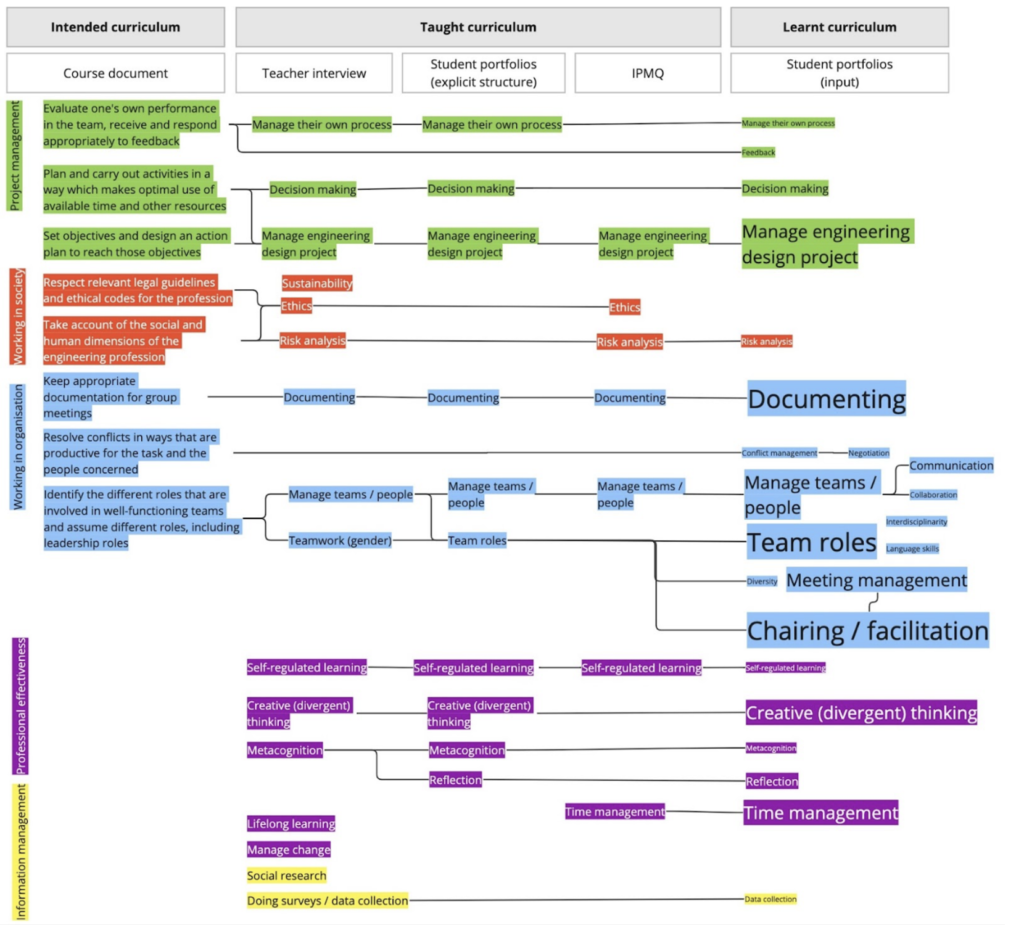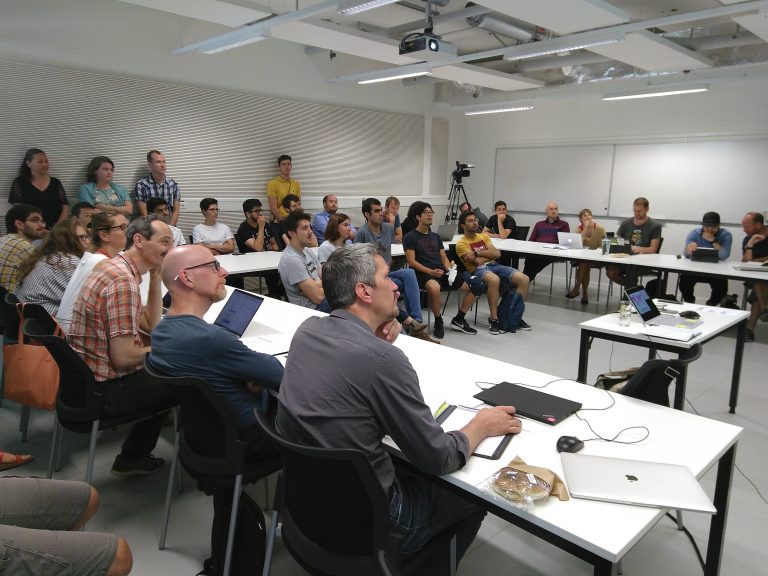Transversal Skills and Portfolios
Helping engineering students develop essential professional skills through portfolio-based learning.

Engineering education today faces a crucial challenge: while students excel at mastering technical knowledge, they often struggle to develop the professional skills that are equally important for career success. Skills like teamwork, communication, project planning, and ethical thinking are essential in modern engineering practice, yet traditional project-based learning often falls short of developing these competencies effectively.
This study explored an innovative solution: using a structured “training portfolio” approach to help master’s-level engineering students systematically develop these professional skills. Unlike traditional project work where students focus primarily on delivering final products, this portfolio method required students to regularly reflect on their learning process, analyze their team dynamics, and document their skill development throughout a semester-long project.
This work is part III of analyzing professional skills. Find out more below:
I. Mapping Transversal skills
II. Making learning explicit: using a portfolio approach for integrating transversal skills into the engineering curriculum
III. Transversal Skills and Portfolios
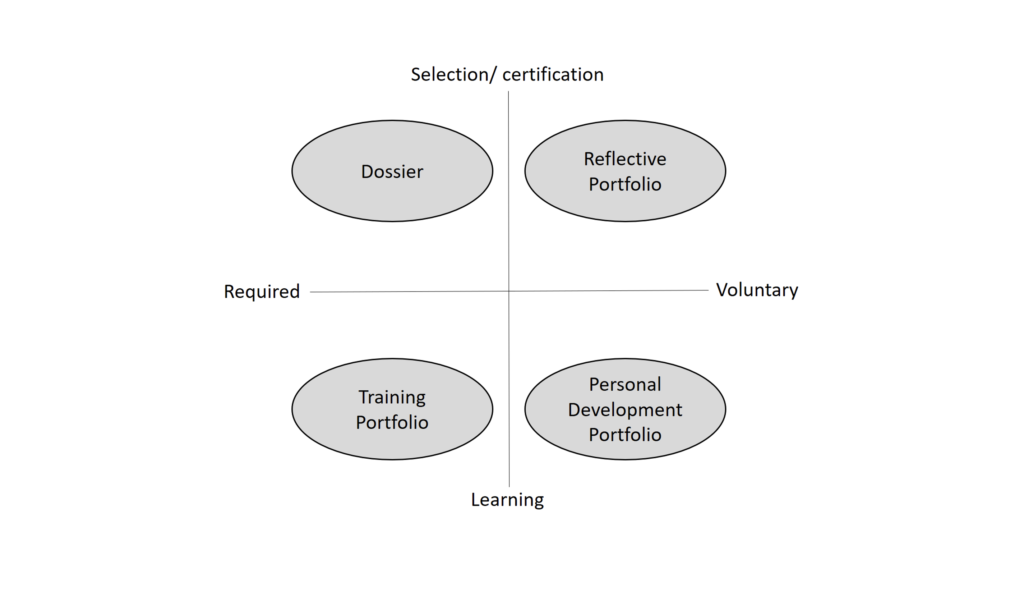
We build upon our earlier efforts (Kovacs et al., 2023) in which we explored how the intention to teach certain transversal skills leads to what students learn, and how the use of a portfolio as assessment tool supports this process. More precisely, we previously investigated how the transversal skills were represented in the different parts of the curriculum. In the present study, we go one step further to ask if the training portfolio as a tool used for assessment has an effect on the development of professional skills over the duration of a course.
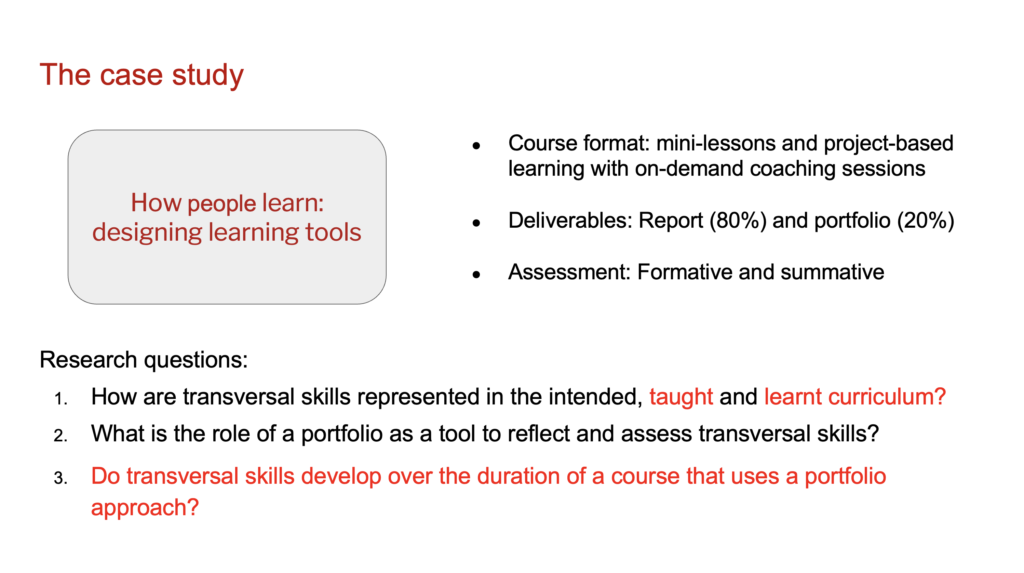
The Portfolio Approach in Action
The training portfolio consisted of three main components. First, students identified specific professional skills they wanted to develop at the course’s beginning. Next, they completed structured reflection exercises throughout the semester, analyzing aspects like creative brainstorming sessions, meeting management, project documentation, and decision-making processes. Finally, they synthesized their learning in a comprehensive reflection that was formally assessed based on the quality of their insights rather than whether they achieved perfect skill mastery.
Self Report to evaluate transversal competencies: The Interprofessional Project Management Questionnaire (IPMQ)
In order to help students plan at the outset of the course for the team or project management skills they would like to learn, and to reflect at the end of the course on their development of these skills over the semester, students filled-in the Interprofessional Project Management Questionnaire (IMPQ, Tormey and Laperrouza, 2019). This was done through an online platform, where they received an automated feedback report, explaining each dimension assessed and their individual score on it.
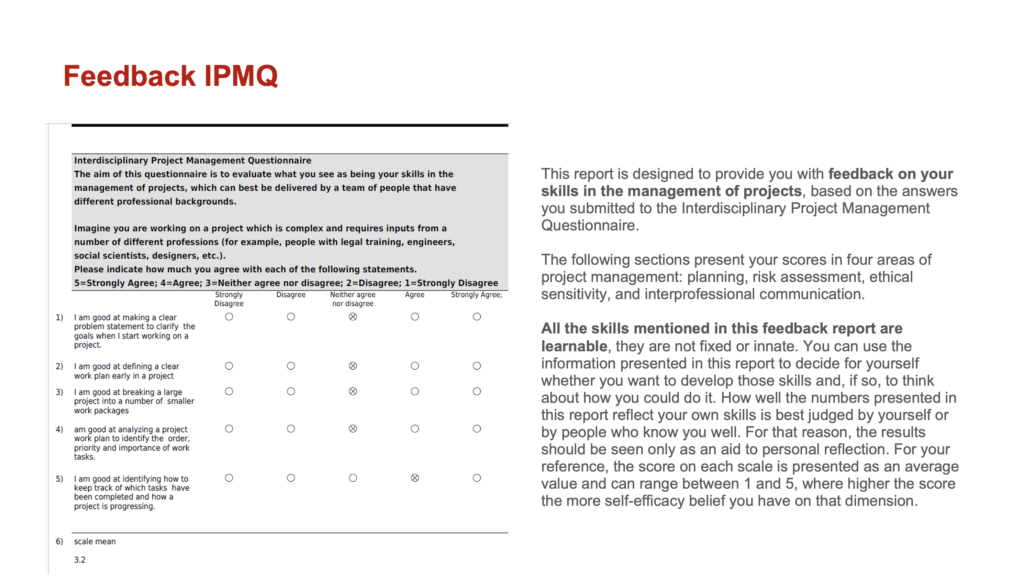
Promising Results
This study proposed and evaluated a training portfolio assessment tool for developing transversal skills in engineering team projects, focusing on team and project management competencies. The results found moderate to large increases in students’ self-efficacy beliefs over the semester, with the strongest gains in interpersonal communication and project planning skills. Qualitative analysis revealed that students primarily developed skills they actively reflected upon, including communication, project management, and ethical sensitivity. The convergence of quantitative and qualitative methodologies confirmed the importance of project planning and interpersonal communication skills, though some discrepancies emerged between perceived and stated skill importance, particularly for risk analysis. The findings suggest that the training portfolio model serves as a pedagogically productive tool by directing students’ attention toward desired learning outcomes and supporting the development of transversal skills, bridging the gap between academic learning and real-world engineering practice.
Publication
Niculescu, A., Tormey, R., Kovacs, H., & Milosevic, T. (2024, June). Developing transversal skills in a project-based course (Paper presented at the annual meeting of the Société Suisse pour la recherche en education, SSRE, Locarno, Switzerland).

